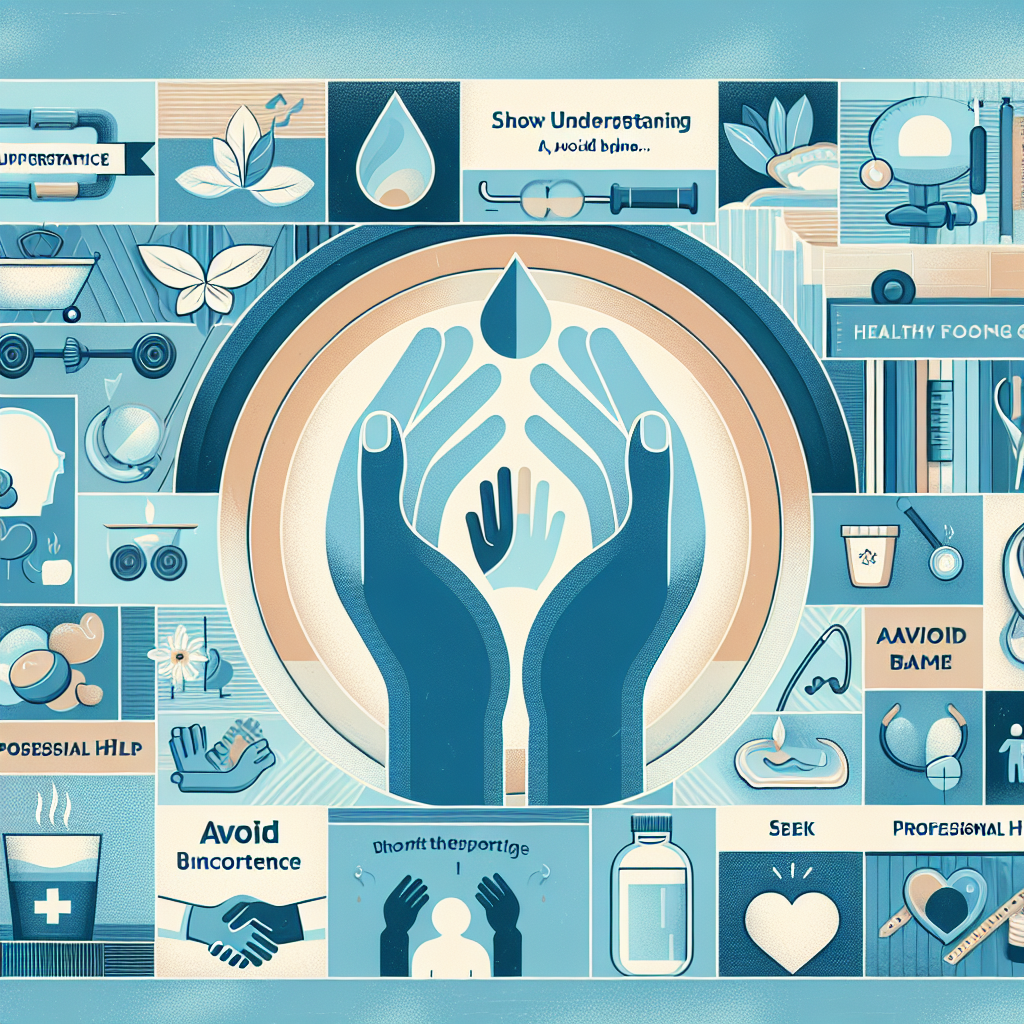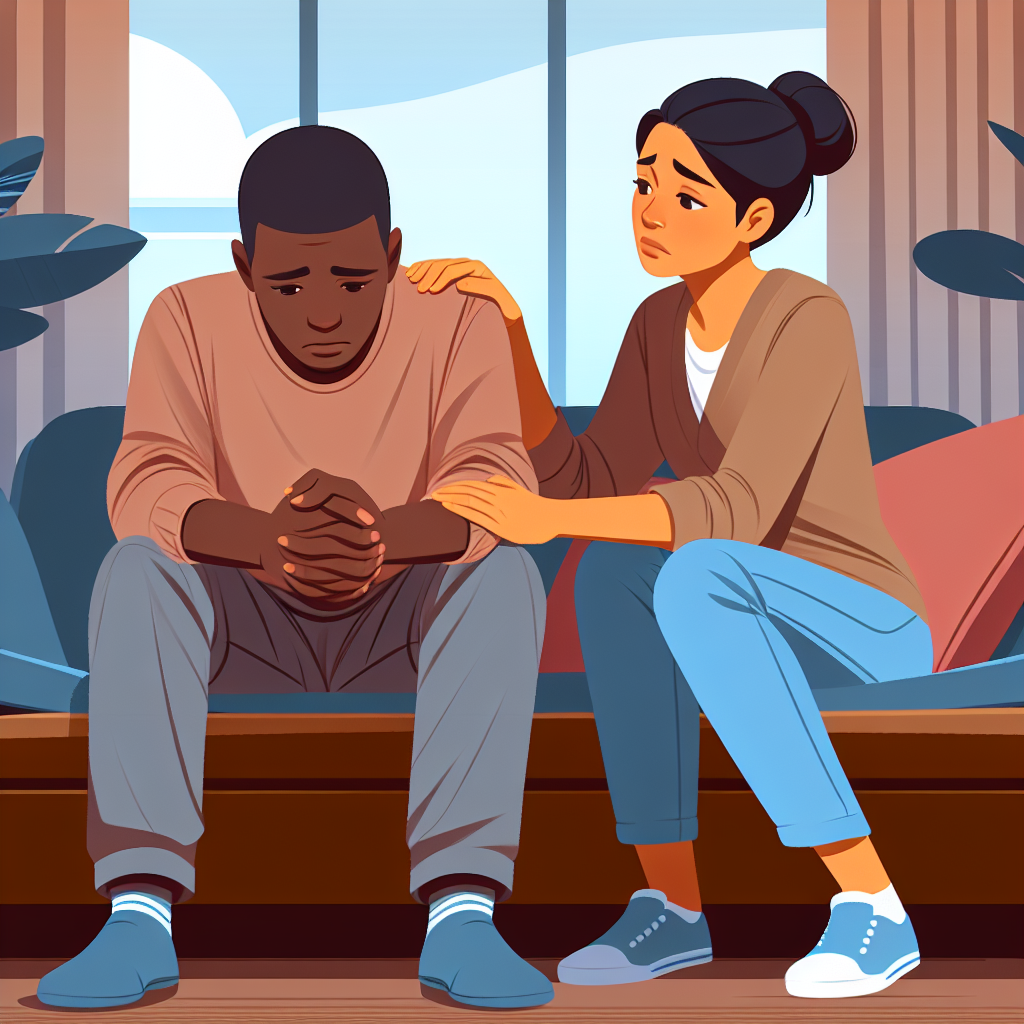-
Table of Contents

“Support, don’t judge; guide, don’t control.”
Introduction
When a loved one relapses, it can be a challenging and emotional experience. It’s important to approach the situation with empathy, understanding, and a plan of action. First, ensure their immediate safety and well-being, and avoid any judgmental or confrontational behavior. Encourage open communication and listen to their feelings and struggles. Seek professional help from therapists, counselors, or support groups specialized in addiction recovery. Educate yourself about the nature of addiction and relapse to better understand their journey. Establish a supportive environment that promotes recovery, and take care of your own emotional health by seeking support for yourself as well. Remember, relapse is often a part of the recovery process, and with the right support, your loved one can find their way back to sobriety.
How to Support a Loved One After a Relapse
When a loved one relapses, it can be a heart-wrenching experience, filled with a mix of emotions ranging from disappointment to fear. However, it is crucial to remember that relapse is often a part of the recovery journey, not the end of it. The way you respond can significantly impact their path forward. First and foremost, approach the situation with empathy and understanding. Relapse does not signify failure; rather, it indicates that the individual needs more support and perhaps a different strategy in their recovery process. By showing compassion, you create a safe space for them to open up about their struggles without fear of judgment.
Communication is key in these moments. Engage in open, honest conversations, and listen more than you speak. Ask them how they are feeling and what they think led to the relapse. This can provide valuable insights into their triggers and help in formulating a more effective recovery plan. Avoid accusatory language or expressing disappointment, as this can lead to feelings of shame and guilt, which are counterproductive to recovery. Instead, focus on expressing your concern for their well-being and your unwavering support.
Encouraging your loved one to seek professional help is another critical step. Relapse can be a sign that their current treatment plan needs adjustment. Whether it’s returning to therapy, attending support group meetings, or considering medication, professional guidance can offer the tools and strategies necessary for sustained recovery. Offer to help them find resources or accompany them to appointments, showing that you are committed to their journey.
In addition to professional help, fostering a supportive environment at home is essential. Encourage healthy habits such as regular exercise, balanced nutrition, and adequate sleep, as these can significantly impact mental health and resilience. Create a routine that includes activities they enjoy and that can serve as positive distractions from cravings or negative thoughts. Moreover, removing any substances from the home that could trigger a relapse is a practical step in creating a safe space.
It’s also important to educate yourself about addiction and relapse. Understanding that addiction is a chronic disease can shift your perspective and help you approach the situation with more patience and less frustration. There are numerous resources available, including books, online courses, and support groups for families of those struggling with addiction. By becoming more informed, you can better support your loved one and take care of your own emotional needs.
Taking care of yourself is equally important. Supporting someone through relapse can be emotionally draining, and it’s vital to ensure you have your own support system in place. Whether it’s talking to a therapist, joining a support group, or simply confiding in friends and family, make sure you have an outlet for your feelings. Practicing self-care allows you to be more present and effective in supporting your loved one.
Lastly, maintain hope and resilience. Recovery is a long and often winding road, but many people successfully navigate it with the right support and resources. Celebrate small victories and progress, no matter how minor they may seem. Your positive outlook can be a powerful motivator for your loved one, reminding them that they are not alone and that a fulfilling, sober life is within reach.
In conclusion, supporting a loved one after a relapse involves a combination of empathy, open communication, professional help, a supportive home environment, self-education, and self-care. By approaching the situation with compassion and resilience, you can play a pivotal role in their journey toward recovery.
Steps to Take When Your Loved One Relapses
When a loved one relapses, it can be a heart-wrenching experience, filled with a mix of emotions ranging from disappointment to fear. However, it is crucial to remember that relapse is often a part of the recovery journey, and there are constructive steps you can take to support your loved one through this challenging time. First and foremost, it is essential to approach the situation with empathy and understanding. Relapse does not signify failure; rather, it indicates that the individual needs additional support and perhaps a reassessment of their treatment plan. By maintaining a compassionate and non-judgmental attitude, you can create a safe space for your loved one to open up about their struggles.
Next, open communication is key. Encourage your loved one to talk about what led to the relapse. Understanding the triggers and circumstances that contributed to the setback can provide valuable insights into how to prevent future relapses. It is important to listen actively and without interruption, showing that you are there to support them, not to criticize. This can help rebuild trust and reinforce the idea that they are not alone in their journey.
In addition to fostering open communication, it is beneficial to seek professional help. Relapse can be a sign that the current treatment plan needs adjustment. Contacting a healthcare provider, therapist, or counselor who specializes in addiction can provide the necessary guidance and support. These professionals can help develop a revised treatment plan that addresses the underlying issues contributing to the relapse. They may also recommend additional therapies or support groups that can offer further assistance.
Moreover, it is important to encourage your loved one to re-engage with their recovery community. Support groups, such as Alcoholics Anonymous (AA) or Narcotics Anonymous (NA), provide a network of individuals who understand the challenges of addiction and can offer encouragement and advice. Reconnecting with this community can help your loved one regain their footing and feel less isolated.
While supporting your loved one, it is equally important to take care of yourself. Witnessing a relapse can be emotionally draining, and it is vital to ensure that you are also receiving the support you need. Consider joining a support group for families of individuals struggling with addiction, such as Al-Anon or Nar-Anon. These groups can provide a space to share your experiences and gain insights from others who are in similar situations.
Furthermore, setting healthy boundaries is crucial. While it is important to be supportive, it is also necessary to protect your own well-being. Establishing clear boundaries can help prevent enabling behaviors and ensure that you are not compromising your own mental and emotional health. Communicate these boundaries clearly and consistently, and remember that it is okay to seek professional guidance on how to implement them effectively.
Lastly, maintain hope and encourage your loved one to do the same. Recovery is a long and often non-linear process, but it is possible. Celebrate small victories and progress, no matter how minor they may seem. Remind your loved one of their strengths and past successes, and encourage them to keep moving forward. By fostering a positive and hopeful environment, you can help your loved one regain their confidence and motivation to continue their recovery journey.
In conclusion, when a loved one relapses, it is important to approach the situation with empathy, open communication, and professional support. Encourage re-engagement with the recovery community, take care of your own well-being, set healthy boundaries, and maintain hope. By taking these steps, you can provide the necessary support to help your loved one navigate through this challenging time and continue on their path to recovery.
Q&A
1. **Question:** What immediate steps should I take if my loved one relapses?
**Answer:** Ensure their safety, offer emotional support, and encourage them to seek professional help or contact their treatment provider.
2. **Question:** How can I support my loved one in the long term after a relapse?
**Answer:** Encourage ongoing treatment, attend support groups together, and maintain open, non-judgmental communication.
Conclusion
If your loved one relapses, it’s important to remain calm and supportive, avoid judgment, encourage them to seek professional help, and take care of your own emotional well-being.



